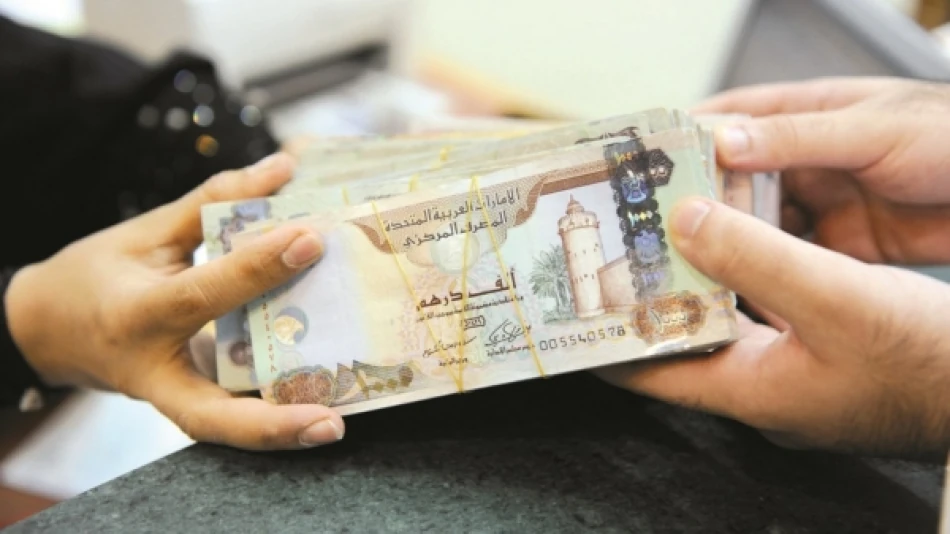
New Social Support Program Boosts Housing, Academic Excellence Allowances
UAE Boosts Social Welfare with Housing and Academic Excellence Allowances
The UAE Ministry of Community Development has activated two key supplementary allowances—housing support and higher education academic excellence incentives—as part of its comprehensive Social Support and Empowerment Program. These measures reflect the Emirates' strategic approach to building long-term human capital while providing immediate financial relief to qualifying families, positioning the nation as a regional leader in targeted social welfare innovation.
Housing Allowance Addresses Critical Shelter Gap
The housing allowance targets a specific vulnerability in the UAE's social safety net: families enrolled in the Social Support and Empowerment Program who receive no government housing assistance. This demographic often falls between traditional welfare categories, making them particularly susceptible to housing instability despite receiving other forms of state support.
The allowance structure demonstrates sophisticated policy design, with payments calibrated to household size and living arrangements. Families in independent housing units receive different amounts than those sharing accommodations, acknowledging that housing costs vary significantly based on living situations rather than applying a one-size-fits-all approach.
Strategic Timing Amid Regional Housing Pressures
This initiative arrives as Gulf states grapple with housing affordability challenges driven by economic diversification and population growth. Unlike Saudi Arabia's massive public housing projects or Qatar's direct homeownership programs, the UAE's approach provides flexible rental support that adapts to market conditions without requiring large-scale construction commitments.
Academic Excellence Incentives Target Human Capital Development
The academic excellence allowance represents a more ambitious social engineering effort, offering up to AED 3,200 monthly to students maintaining a 3.3 GPA or higher in accredited higher education institutions. This payment level is substantial—roughly equivalent to entry-level salaries in many sectors—creating genuine financial incentives for academic achievement.
The program specifically targets children from families already receiving social support, addressing a documented phenomenon where financial stress often derails promising students' educational trajectories. By providing direct payments rather than loans or scholarships, the UAE removes immediate economic pressures that might otherwise force students to prioritize work over studies.
Regional Context and Competitive Positioning
This approach mirrors successful models in Singapore and South Korea, where merit-based payments have proven effective at boosting educational attainment among lower-income populations. However, the UAE's integration of these payments into existing welfare infrastructure represents a more streamlined approach than the separate scholarship systems common in other Gulf states.
Digital Infrastructure Enables Efficient Implementation
The ministry's commitment to processing applications within 21 days through its digital platform reflects broader UAE digitization priorities. This timeline significantly outpaces traditional welfare bureaucracies and suggests the program benefits from the Emirates' substantial investments in government technology infrastructure.
The online application system through www.moce.gov.ae also enables real-time monitoring of program uptake and effectiveness, providing policymakers with data needed for future adjustments—a capability often lacking in traditional welfare systems.
Policy Innovation Through Targeted Flexibility
The program's special provisions for orphans and children of incarcerated individuals demonstrate sophisticated understanding of how traditional eligibility criteria can inadvertently exclude vulnerable populations. Similarly, extending academic allowances to students in accredited distance learning programs acknowledges evolving educational delivery methods.
These adaptations suggest the UAE is designing welfare systems for future demographic and technological realities rather than simply scaling existing approaches.
Economic and Social Implications
From a fiscal perspective, these targeted allowances likely cost significantly less than universal programs while potentially delivering higher returns through improved educational outcomes and housing stability. The focus on families already enrolled in social support also ensures efficient targeting without creating new administrative overhead.
The emphasis on academic achievement could accelerate the UAE's transition toward a knowledge-based economy by ensuring talented individuals from disadvantaged backgrounds can contribute to sectors like technology, finance, and advanced manufacturing rather than being constrained by family economic circumstances.
These initiatives position the UAE as a regional innovator in social policy, combining immediate welfare support with longer-term human capital investment in ways that could influence policy development across the Gulf region.
Most Viewed News

 Sara Khaled
Sara Khaled






